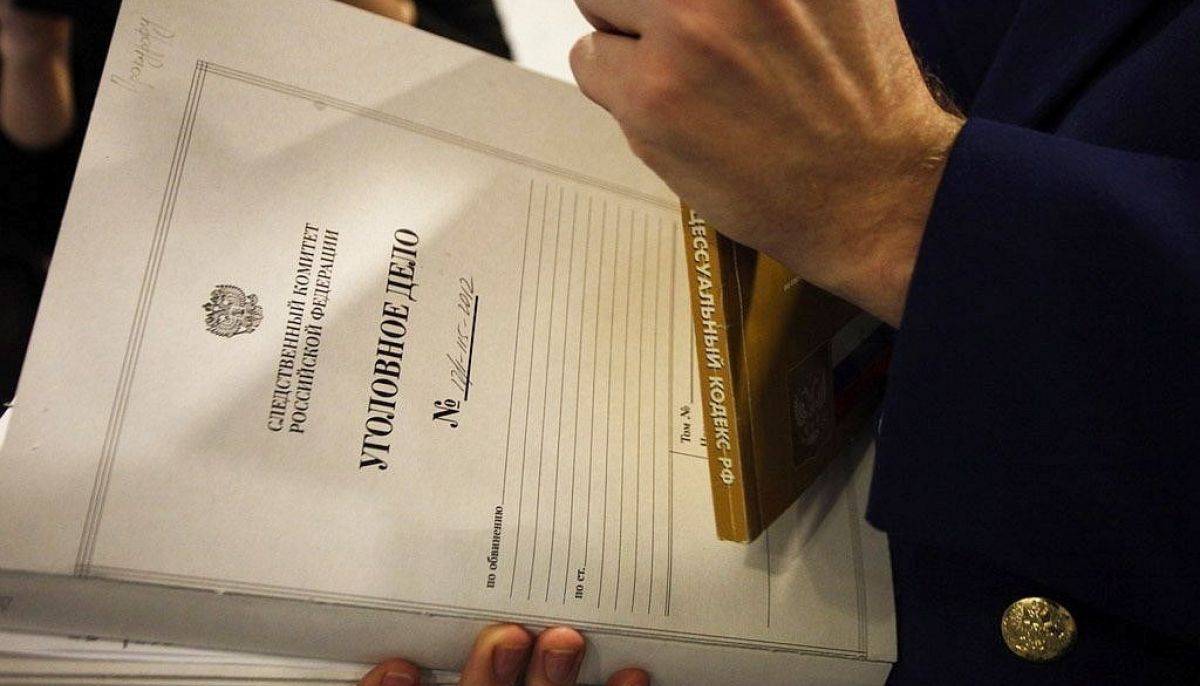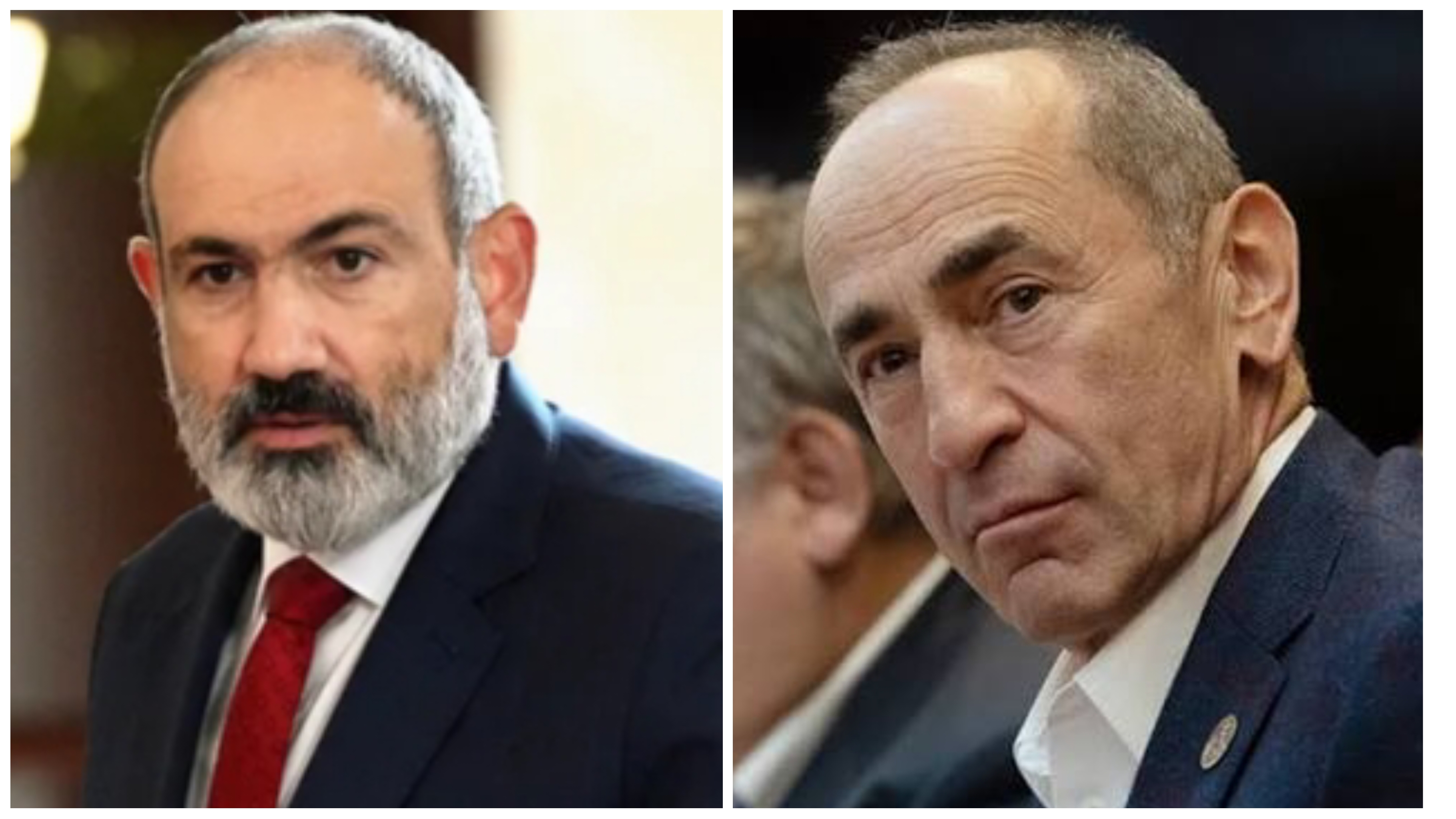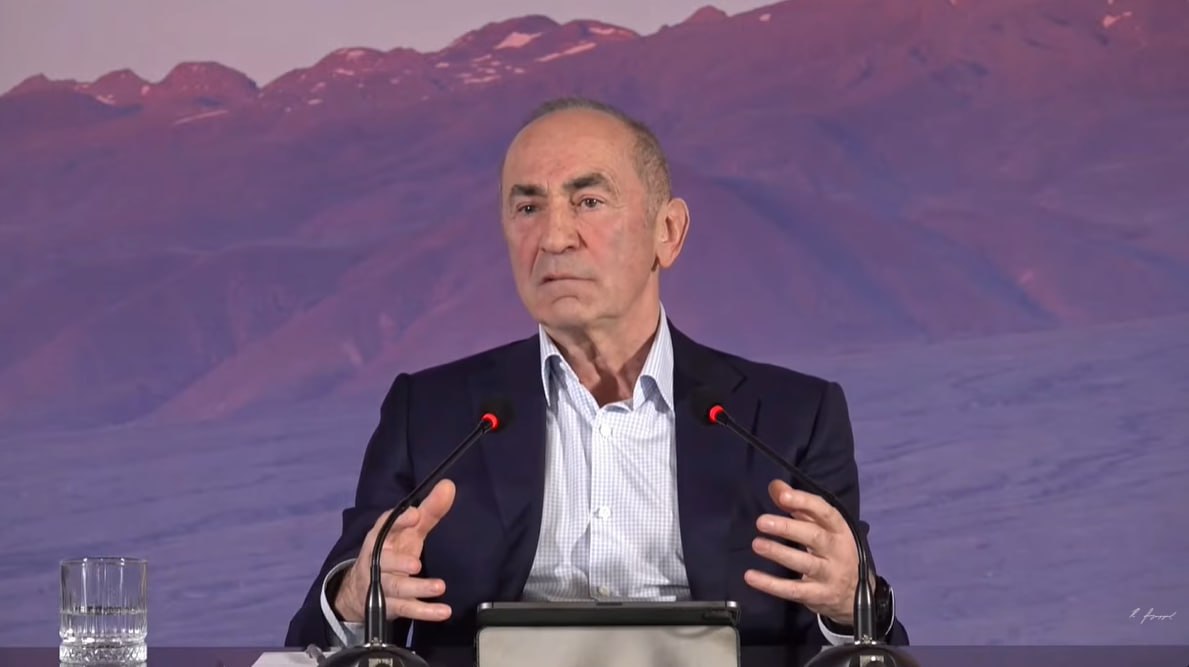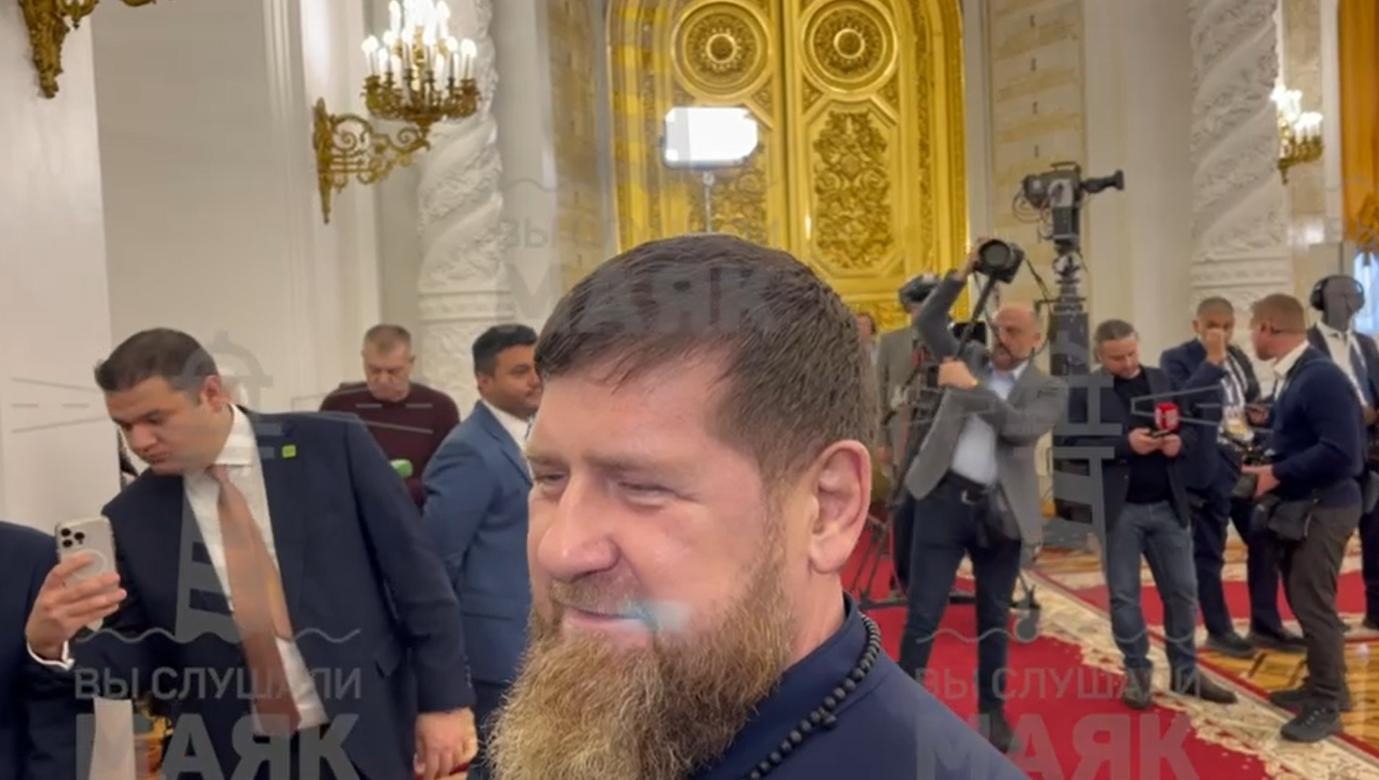A second administrative case has been opened in Chechnya in Russia for searching for "extremist materials" online. The case was registered by the Naursky District Court, and local resident Isa Magomadov is listed as the offender.
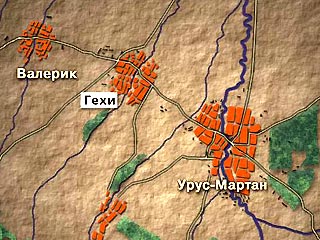
June 22, 2001
***
At dawn, a resident of the village of Gekhi, Urus-Martan district, Ruslan Khuseinovich Shakhtamirov, born in 1975, was killed from an automatic weapon.
Residents of the settlement testify that the crime was committed by the Russian military. Bursting into the house, they stood over the bed of the mother of the murdered. The awakened woman realized that they had come for her son, and shouted (in Chechen): "Hey, son, run, the Russians have come."
Hearing his mother's cry, Ruslan Shakhtamirov, who was in another room, jumped out the window. Following the Russian military fired a burst of machine gun fire. The young man fell dead.
The shooters apparently did not realize that they had hit him. At least this is how the villagers explain that they did not take the corpse with them. Moreover, thinking that he managed to escape, the military entered the house of Musa Shakhtamirov, the younger brother of the murdered father, who lived in the same yard, and, having first beaten him, took him hostage. He was taken, or rather, dragged closer to the center of Gekhi, and here, at the crossroads leading to Urus-Martan on one side, and deep into the residential areas of the village on the other, they laid him face down on the ground.
After his release, he said that he saw three young people surrounded by Russian military men. Their hands were tied behind their backs, and their clothes were pulled over their faces. They were also on the ground. It is assumed that these were the Elbiev brothers, who were taken away this morning from their own house on Kavkazskaya Street.
The servicemen also tied Musa Shakhtamirov's hands, blindfolded him and took him to an unidentified place, where they tortured and beat him. A few days later he was thrown out on the outskirts of the village. The condition of the man found by the locals was grave. For a long time after that, he could not even go out into the yard on his own.
The Shakhtamirovs prefer not to talk about the crimes committed against their family members. They also refused to tell the staff of Memorial Human Rights Center about it. But residents of the village of Gekhi nevertheless reported that more than two months before the events described, the Russian military killed the younger brother of Ruslan Shakhtamirov, Ramzan Khuseinovich Shakhtamirov, born in 1981.
***
Even before dawn, employees of the Russian law enforcement agencies entered the courtyard of Malika Ismailova (by her husband - Elbiyeva), who lives at the address: Urus-Martan district, Gekhi village, Kavkazskaya street, 55.
Hearing noise in the yard, her son, Mukhamed-Ali Movladievich Elbiev, born in 1973, was the first to wake up. He woke his mother and sister, and together they looked out the window. There were Russian soldiers in masks in the yard. Some of them, having taken combat positions, remained there, others entered the house that stood at a distance from the main building. The son of Malika Ismailova, Khas-Magomed Movladievich Elbiev, born in 1980, slept in it.
The woman guessed that the military wanted to detain him, and therefore, waking up Magomed-Salekh Movladievich Elbiev, born in 1975, who was still sleeping in the next room, she tried to go out into the yard with her daughter. They had already stepped onto the porch when the military, pushing them away, burst into the corridor. The women began to scream. Some military man threatened them: "Shut up, otherwise I'll shoot like cattle" - and put a pistol to Malika Ismailova's forehead.
The intruders were wearing masks, and there were no military insignia on their camouflage uniforms. It was impossible to establish their departmental affiliation.
The servicemen pushed the women behind a sofa in the corridor and entered the rooms where Mukhamed-Ali and Magomed-Salekh Elbiev were already dressing. A search began, accompanied by a pogrom: wardrobe drawers and clothes were thrown on the floor. The wardrobe doors had been torn off their hinges.
After a “search”, during which not a single object prohibited by Russian laws was found, the military detained Mukhamed-Ali and Magomed-Salekh Elbiev. Their hands were tied, their mouths were sealed with adhesive tape and, having pulled clothes over their heads, they were taken out into the yard.
Malika Ismailova and her daughter were barricaded in the room with a heavy sofa. When they started her, the woman caught a glimpse of one of her sons, Magomed-Salekh Elbiev. A jacket was pulled over his head. To the cries of the mother: “Where are you taking me?” one of the soldiers said: "We'll check and release."
In the room, her youngest, 11-year-old son, lay in bed. He was kept at gunpoint all the time and sentenced: "Sleep, sleep ..."
The military took away with them three brothers: Mukhamed-Ali, Magomed-Salekh and Khas-Magomed Elbiev.
The next morning, the mother turned to the local police department. There were also relatives of other residents of Gekhi, who were detained by Russian security forces. A total of 15 people were detained. The police department told the relatives that they had no information about what had happened in the village.
Malika Ismailova went to Urus-Martan. She informed the district administration, the prosecutor's office and the police that her sons were unreasonably detained. Thinking that the authorities would quickly figure everything out and release them, she remained in front of the commandant's office in the city center. An employee of the military commandant's office, where the woman also applied, looked at the photograph in Khas-Magomed Elbiev's temporary certificate and said that "such a person seems to have been brought here." Promising to check it out, the military man entered the building.
After a while, he came out and said that he was mistaken. Malika Ismailova did not believe it and remained waiting in the regional center. It was here that people who came from the village of Gekhi found her. They told the woman who felt something was wrong that her three sons were found killed on the outskirts of the village, next to the cemetery.
The bodies of the Elbiev brothers were found by local residents who were digging a grave for Ruslan Husseinovich Shakhtamirov, who was killed that very morning. According to their stories, they smelled a strong smell of blood in the cemetery. When they tried to find its source, they first stumbled upon two corpses, then a third. The bodies of the Elbievs had signs of beatings and torture, but they were killed by shots from a firearm in the temple and heart.
The real reason why the Russian military broke into the house of Malika Ismailova is unknown. However, it is clear that they knew those they came to. None of the kidnappers were interested in the documents. Magomed-Salekh Elbiev's temporary identity card, for example, was later found in the pocket of a suit that he managed to put on before leaving home. And Khas-Magomed Elbiev's identity card, the same one that his mother later showed to the military at the district commandant's office, was under his pillow. There were no documents of Mukhamed-Ali Elbiev. A month later, his identity card was found near the site of the massacre.
Having buried the children, Malika Ismailova left the republic, saving, as she then thought, her daughter and her surviving minor son. But then she decided to return home and seek consideration of the case on the fact of the murder of her children. She applied to the prosecutor's office of the Urus-Martan district, where criminal case No. 25146 was initiated. 195 p. 3 Code of Criminal Procedure of the RSFSR.
The tragedy that happened that day was not the first for this woman. On August 8, 2000, the military took her away from home and then killed her other son, Magomed Movladievich Elbiev, born in 1977. This happened during the “cleansing” of the village of Gekhi, which was led by three high-ranking Russian generals at once: Deputy Minister of the Interior of the Russian Federation, Commander-in-Chief of the Internal Troops Vyacheslav Tikhomirov, Commander of the North Caucasian District of the Internal Troops Mikhail Labunets and Commander of the 245th Motorized Rifle Regiment of the Russian Defense Ministry Nedobitko . The military commandant of the Urus-Martan region, Colonel Heydar Gadzhiev, also took part in it. For "great successes in the fight against terrorists," the latter was soon promoted to general.
According to Malika Ismailova, her son's leg was broken in a traffic accident. To fix a poorly fused bone, doctors inserted iron needles into it. On the day of the “cleansing” Magomed Elbiev felt unwell and was lying in bed, but a young nurse who accompanied the soldiers who entered the house examined him and said: “It’s okay, and not such patients were cured.” He was taken to a temporary filtration point, equipped on the outskirts of the village, and killed there. A week later, local residents discovered his corpse in a burial, in which the remains of several more people were found.
Khas-Magomed Elbiev, according to the villagers, publicly said that he would avenge him. Perhaps the murder of himself and two other brothers a year later is connected in some way with these statements.
Malika Ismailova raised her six children alone. Her husband, Movladi Elbiev, died of cancer in 1994.
***
At about 8 am, an artillery strike was carried out on the central estate of the Novoselsky state farm, located on the northern outskirts of the regional center Achkhoy-Martan. He received a concussion and was taken to the hospital Lom-Ali Estemirov. A car belonging to Shahid Daurbekov was smashed.
As a result of unmotivated shelling of the village by Russian artillery, private households were destroyed. According to unverified reports, several people were injured. Memorial Human Rights Center does not know what condition they are in.
According to the residents of Achkhoy-Martan, the watchman of the local pond was kidnapped by the Russian military that day. What is the name of this man and what happened to him in the future, it was not possible to find out.
***
Three local residents were killed in the forest near the village of Makhkety, Vedensky district. The surname of one of them is Saitov. According to the stories of fellow villagers, these people were going to cut wood, but they came under intense artillery fire. Attacks on the forests around the settlement continued in the following days. On June 23, these places were bombarded from the air. In the middle of the day, helicopters arrived, firing rockets and machine guns, including outlying houses.
***
Vahid Usamovich Timaev, born in 1958, was kidnapped in Grozny. To house 22/32 on Mogilevskaya street, where he stopped after moving from Ingushetia, the Russian military arrived in two UAZ-452 cars (the so-called tablet) and white Zhiguli cars of the sixth model. Bursting inside, they took the man outside and took him away in an unknown direction.
On the fact of his abduction (Article 126 part 2 of the Criminal Code of the Russian Federation) on August 15, 2001, the Grozny prosecutor's office opened criminal case no. 13129. However, the investigation did not lead to any positive results. At the beginning of 2004, the whereabouts of Vakhid Timaev could not be established.
The kidnapped was a member of the CRI armed formations. On March 20, 2000, in the battles for the village of Goi-Chu (Komsomolskoye) of the Urus-Martan region, he went to the positions of Russian troops. Together with other militants who laid down their arms (according to various sources, from 100 to 150 people decided to do this), he was kept for several hours in a tract in the immediate vicinity of the settlement. All this time, the military, in the presence of high officials (for example, General Mikhail Labunts), took weapons from people who had surrendered, recorded passport data, filmed them on a video camera and carried out other investigative actions. But not only. Taking them to a nearby beam, the Russian military shot twelve or thirteen people who had minor or moderate injuries (there were no seriously wounded, except for one, Taus Boguraev, among them).
Divided into groups, the same evening the survivors were taken to two places: to the commandant's office in Urus-Martan and Khankala. Among those who were taken to the territory of the military base was Vahid Timaev. There, those who surrendered were periodically taken away for torture and beatings and kept in two trucks. From thirst, overcrowding, lack of fresh air and lack of medical care, another 12 or 13 people died in four days.
The corpses of these people were separated from the living only on March 25. It happened at the Chervlennaya station in the Shelkovsky district of Chechnya, where they were brought in the same cars in which the surrendered members of the CRI WF were brought to be sent to Taganrog and Novocherkassk. Several other people died on the train. Less than 50 people from among those who laid down their arms and went out to the positions of Russian troops near Goi-Chu were placed in places of detention located in these cities. The fate of the survivors was different.
Some ended up in Rostov-on-Don and in the winter of 2000/2001 were put on trial. Others, after paying a significant ransom, were released under an amnesty. Among the latter was Vahid Usamovich Timaev. His relatives paid about $4,000 to get him free.
***
At about 3 p.m. on Zhukovsky Street in Grozny, in the immediate vicinity of the Banya bus stop, unknown persons blew up a car. It happened at the moment when an armored personnel carrier was passing by. As a result of the explosion, according to eyewitnesses, one Russian soldier was killed and several were wounded.
The people standing at the bus stop were also injured. Most of them were students of Grozny universities. According to available information, two of them died immediately, one died in the hospital.
With injuries of varying severity, 13 people were taken to the city hospital No. 9.
MEDIA REPORT:
In the Leninsky district of Grozny, a group of unidentified people fired at a Ural car in which there were OMON fighters of the Internal Affairs Directorate of the Ministry of Internal Affairs of the Russian Federation for the Chechen Republic. It happened at the intersection of Zhukovsky Street and Olimpiyskiy Proyezd. OMON officers Ilyas Sulimanov, Beslan Zubkhadzhiev and Salambek Bisultanov received bullet wounds. The attackers managed to escape from the scene.
From the book "People Live Here", Usam Baisaev, Dmitry Grushkin, 2006
